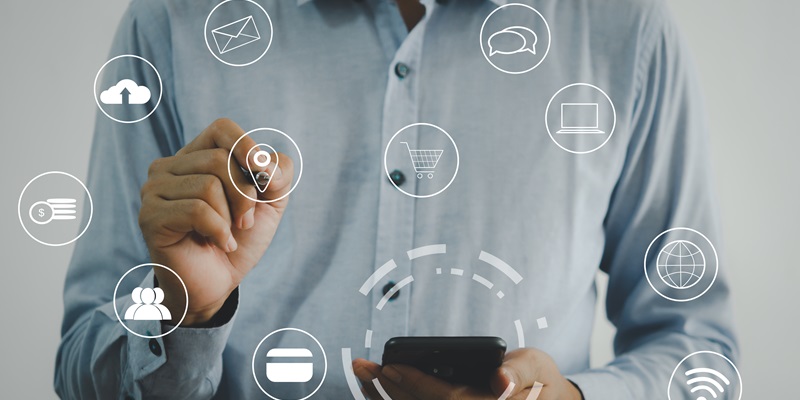Commerce is undergoing a significant transformation with the rise of M2M (Machine to Machine) Marketing. This development is rooted in continuous technological advancements and the evolution of business strategies. M2M marketing transcends being a mere trend, signaling a transformative shift within traditional marketing paradigms. It is deeply intertwined with the Internet of Things (IoT), propelling us into an age where machine autonomy is central, allowing devices to communicate and perform transactions with minimal human intervention. This new landscape presents both challenges and opportunities, altering how businesses and consumers interact and setting the stage for a more connected and automated future. The core of M2M marketing lies in its ability to streamline processes, create more personalized customer experiences, and present innovative approaches to market engagement.
The Core of M2M Marketing
M2M Marketing flourishes on the foundation of real-time, data-driven decisions. Imagine a world where machines, empowered with artificial intelligence algorithms, autonomously decide when to reorder supplies, negotiate service terms, or even schedule their maintenance. This is not science fiction; it’s the burgeoning reality of M2M marketing, tactfully leveraging IoT to orchestrate these independent machine decisions. The approach promises a significant leap in operational efficiency by eradicating human error, cutting down on manual administrative work, and enabling a more streamlined, automated supply chain management approach that thrives on precision and predictive acuity.
These developments call upon businesses to reassess their strategies, for the players in this new era are not just human decision-makers but the machines themselves. Companies are now poised to tweak their marketing efforts to appeal to algorithmic preferences and compatibility requirements. Traditional marketing efforts designed to engage and persuade humans are being drastically retooled to interface with intelligent systems. Businesses are thus nudged to stay ahead of the curve by tapping into these technological advancements, ensuring their products and services are not just market-ready but also machine-ready.
Adapting to a New Commercial Landscape
The rise of M2M (Machine to Machine) transactions heralds a bold future where interactions between intelligent systems take center stage. This shift will redefine consumer markets, requiring stronger cybersecurity, clear regulations, and advancements in AI. Businesses must reshape their strategies for an era dominated by this new form of commerce.
Operational sectors are set to evolve with these automated exchanges, propelling efficiency and innovation. No longer are machines mere tools; they’re now decision-making entities. This transformation beckons a streamlined marketplace with enhanced consumer experiences and a web of smart, interconnected tech.
To lead in the M2M landscape, companies must adeptly navigate the shift, crafting novel business models around machine-driven interactions. The era of M2M marketing is presenting itself, urging firms to seize the opportunity for market leadership through new efficiencies and innovative approaches. The threshold of this new commercial revolution has been crossed.

